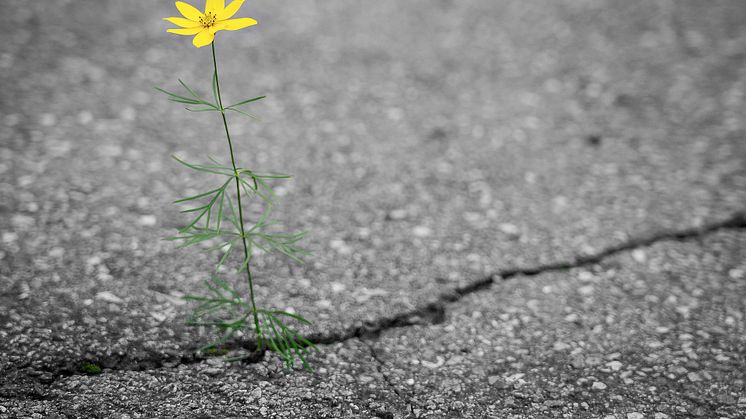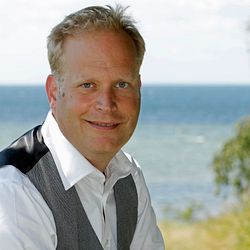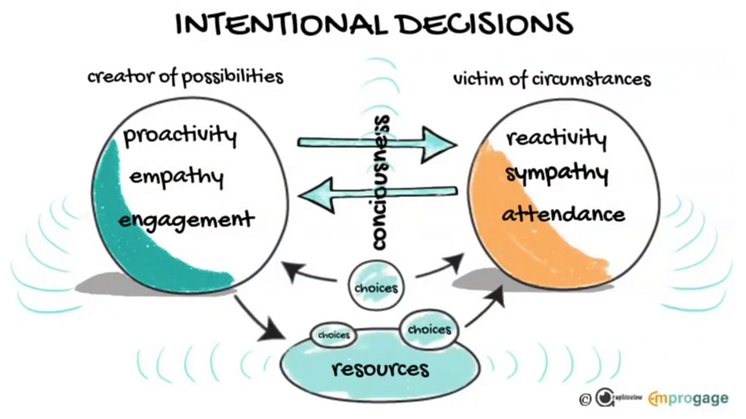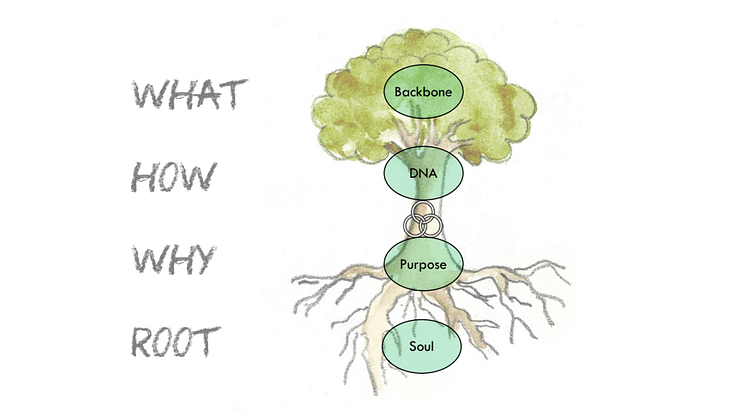
Blog post -
What is 'core business' in times of crisis?
Corona Opportunities
In the last weeks and months, the COVID-19 virus has given humanity a once-in-a-lifetime opportunity to take actions that we without a little nudge would probably not have done that quickly - flying less, working remotely, and consuming intentionally. However you like to see and interpret current circumstances, as a crisis moment or as an opportunity, what we all can agree on is that business-as-usual has come to an abrupt halt.
When I look to the humans and businesses around me, then I am seeing basically two immediate reactions. The first accept and embrace the circumstances and are curious about exploring new ways of moving forward. After a short shaking and remembering their reason for existence they find new opportunities to express their purpose, despite being in a "chaotic and exponential VUCA environment". These Creators of Possibilities could not be calmer in the eye of the storm. They thrive.
The second observable reaction is regrouping and focusing on 'business-critical' functions. The priorities go to "the core business", and everything else is blended out. "There is no time, no budget" are common statements and it seems like there is a lot of hectic and stress. This is survival mode as it's best for the Victims of Circumstances.
This made me wonder:
What is 'core business' in times of crisis?
Let's start with some empathy. Don't we all go back to what we know when things get difficult, confusing, and irritating? When we are overwhelmed by the complexity of events and can't make sense of them, I believe, it is only human to go back to what we know. This is what I would do and have done. Sometimes we simply lack the resources to appropriately deal with our circumstances in a healthy and life-affirming direction.
The issue is that going back to business-as-usual is exactly the problem. Contracting to what worked in the past and hoping it will continue to work in the future is not desirable in a world where change is the only constant. Right now everything that is not sustainable breaks down. The economy collapses because people buy only what they essentially need. It seems to me that the holy grail of materialism is losing its appeal, fast.
Here is what strikes me most about this scenario and the way of working: If the activities before a drastic change in the environment were not 'business critical', why did you do them?
What made you believe that they are?
What motivated you to engage in them as part of your 'core business', when they are apparently not?
Perhaps letting go of some of these activities is what needs to happen in order to evolve your business. Which ones you might ask. The question remains, what is 'core business' then?
Three advice on business that is Best For the World in turbulent times
In the following you find three aspects to reflect upon and come to the understanding of what 'core business' is for you and your circumstances. Here is how you can humanize your business and create life-affirming patterns, despite or especially because of times of crisis and uncertainty.
1. The reason for existence (WHY)
Every business, company, or any form of organization has come together for a certain reason at a specific time and space. Ask these questions and start dialogues about them in your context:
- Why do you personally do what you do?
- Why did our organization come to live?
- What motivated the founder(s) of your company to address the core issues they initially faced?
- Why does our organization exist?
Every activity that is not contributing to that collective and evolving purpose is probably not 'core business'.
2. Business resilience (HOW)
In order to continuously learn from current and changing circumstances business resilience is here defined as "the organization's ability to respond to changes faster". It is the organizational fitness and adaptability to changes in a given context. Note that context can be two-folded, however think of it as a symbiotic relationship - one cannot exist without the other. It is the change in the outer environment, as in outside your organization, as well as the inner ways of working. In the business context that refers to mindset, the knowledge of humans about and interpretation of events, as well as methods or structure, the organizational tools to intentionally act on these events to achieve a specific purpose. Ask yourself and your colleagues:
- What events do we sense?
- How do we interpret current events (in regard to our purpose and strategy)?
- How satisfied are we with our organization's response to change?
- What can we improve, change, or get rid of to be able to face similar situations again (in regard to our way of working - method - and interpretation - mindset)?
These questions help you and your organization to identify the right mindset and methods for your context. Improving the organizational system, how work is organized, is 'core business'.
3. Improvement of environment (Root assumptions)
Building upon the previous two aspects, after identifying your organization's authentic reason for existence and improving your organizational ability to respond to changes more effectively, the focus needs to continue to go outward while staying true to your collective purpose. Part of your 'core business' is to take responsibility for changes in the larger environment your organization is part of. Without a planet and resources, no business continues to exist. But not only environmental boundaries affect your business, but also social ones. Without healthy humans, no work gets done, no innovation made, no product sold. Ask these questions to reflect on how you, together with your colleagues and other organizations, can contribute to the environment you are part of:
- What have we learned about changes in the environment?
- What systemic challenges do we sense that threaten our organization's existence (in regard to our purpose)?
- What can we do, that is grounded in our collective purpose, that turns threats into opportunities in order to contribute to our environments?
- Which social relations can we strengthen and who can we collaborate with to achieve our collective intentions?
Answering these questions enables you and your organization to identify intervention points for systemic patterns. Together you, your colleagues, and members of other organizations can proactively co-create conditions that benefit all of you. Taking the lead for contributing to your environment, and together creating value in a direction that is best for the world, will strengthen your own position in the ecosystem. Collaboration for improving the environment you are part of is 'core business'.
Co-creating regeneration
To summarize, your organization's' core business' is not to ensure your organization's own survival. Your 'core business' is to create systemic conditions that allow everyone to flourish - humans and businesses - including yourself.
Let us together use these tremendous opportunities to intentionally create the future we desire and the life-affirming contexts we need to thrive.
Emprogage co-creates what is in the direction that is Best For the World, by intentionally choosing Empathy, Proactivity and Engagement.
Contact us for exploring how we can co-create together.


